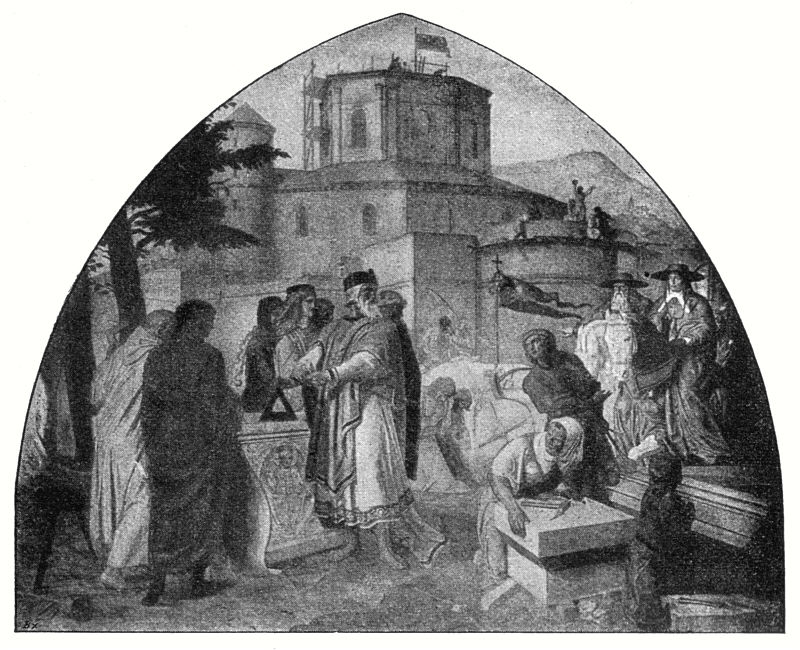Patronless (Patronage Supplement)
| Wild Race |
|---|
|
With no Patron race to terrorize them, or to give them a purpose, the wild races are often considered simultaneously pitiable and enviable. Realm: None
Noble: Human
Base: Warforged
|
There are two races in Patronage with no known Patrons. These Patronless races are alternately bullied, denigrated, feared, envied, enslaved and persecuted. For convenience, humans are refered to as the Noble Patronless race, because at least they are not known to be created by a lesser race. The warforged, on the other hand, are considered beneath even the lowly humans, for it is known they were crafted by mere mortals.
Humans[edit]
Humans hold a unique position in this world. Their origins are completely shrouded in mystery. They appeared in the world, apparently spontaneously, about two centuries after the creation of Patronage.
Humans are also the only race with the gift of Prophecy, which allows them to know things that occur far away or other information lost to time. Only a few humans have this gift of Prophecy, and they attribute their powers to the ability to speak with the spirits of the twelve original humans (called, collectively, the "Twelve").
The humans venerate the Twelve, and have memorialized their story in an epic called the "Dodecon". This book, with the story of the early Dragonseye settlement called the "Elemiad", are holy books to humanity. In fact, humans have been able to access divine power simply through veneration of the books, although some contend this access is also a sign of a connection to the Twelve.
Prominent Humans[edit]
Humans have had a prominent role in the history of Patronage.
- The Twelve: The legendary first twelve humans who mysteriously appeared in the Dragonslands two and a half millennia ago. They founded Dragonseye and built the Wheel. Their stories have been immortalized in the epic tale the Dodecon. It is believed their spirits still roam the world, whispering prophecies to chosen disciples.
- Yosea: An early king of Dragonseye. According to his story as related in the epic Elemiad, he betrayed his own race in return for the promise of immortality from the Fey. He disappeared shortly after the betrayal and it is unclear whether the Fey lived up to their promises.
- Zebel: An early queen of Dragonseye, and king Yosea's spouse. According to the Elemiad, part of the price of Yosea's immortality is that she was abducted by the Fey to be their plaything.
- Davra: The daughter of King Yosea and Queen Zebel, she betrayed her parents and saved the fledgling settlement of Dragonseye. According to the Elemiad, she fought off an entire army of goblins almost single-handedly.
- Pythius: A legendary trader from the 7th century, who reputedly invented the concept of banking, making him extraordinarily wealthy. The phrase "as wealthy as Pythius" is often used to connote an obscene amount of wealth.
- Aris: The legendary 10th century tutor of halfling Empress Lucinda, he is regarded as one of the greatest ritualists of any age. It is said he crafted the ritual that allowed Lucinda to drive away the Patrons she fought, but that its invocation utterly destroyed him,
- Antigone: The first Queen of the Eastern Kingdom, she had been one of Lucinda's most trusted servants. Although her reign was marred by military defeats, she is still remembered as one of the first humans after the Twelve to give her people a home.
- Philip: A king of the Eastern Kingdom, he is not remembered fondly for he started an ill-considered war against the Avatars and clouded his daughter's mind with delusions of grandeur.
- Persa: The successor of Philip, she believed herself to be the human incarnation of Lucinda, but was captured by the Avatars and died in captivity, after which, the Eastern Kingdom was absorbed into what would become the Alabastrian Empire. However, she is also known for having forged the Evararm.
- Josephine: The greatest of human prophets, she led a passive mystic resistance to Alabastrian occupation of Dragonseye until her trial, torture and execution. Her followers still delve the texts of the Dodecon and Elemiad for mystic paths to enlightenment.
- Jonnan: A human gladiator who won his freedom and led a violent revolt against Alabastrian occupation of Dragonseye. His martial skill, uncompromising nobility, and defiant martyrdom have inspired countless human rebellions against tyranny.
- Kavadh: A puppet of the dread lich Efthal, who turned against him and started a rebellion that briefly toppled the mighty lich.
- Khosrau: A mighty hero who killed Efthal's puppet Emperor and drove Efthal into hiding as long as he lived.
- Aira: A prophetess who led her persecuted people to the secret city of Ramhead and negotiated an alliance between the Rangers and the Caliphate to topple the corrupt Second Empire.
- Rickard: The Archduke of Dragonseye, and the founder of the most current haven for humankind in hundreds of years.
Warforged[edit]
The warforged were created by the construct masters of Nidvalar. They have only appeared in Patronage in the last few generations, and are the first "wild" race since humans appeared more than 2,500 years ago. (Of course they aren't as much of a mystery as humans because it is known where waforged originated.) The warforged serve the ritualists of Nidvalar as servants and defenders. Some refer to warforged as the base race of Nidvalar, a term the warforged generally dislike.
Back to Main Page → 4e Homebrew → Campaign Settings → Patronage
